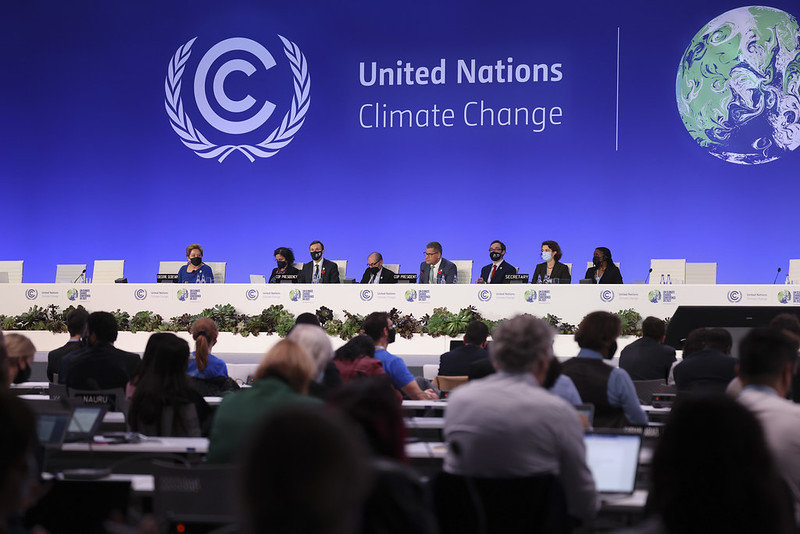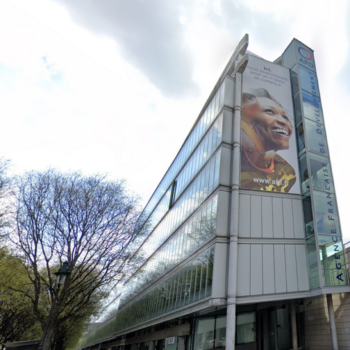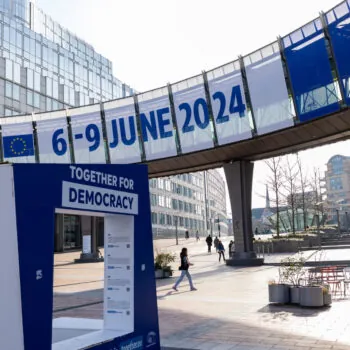Countries have agreed the Glasgow Climate Pact at COP26, a deal that offers a political lifeline for accelerating action to keep temperature rise below 1.5C and respond to rising climate impacts.
Decisions on revisiting 2030 emissions targets and efforts to phase down coal power and phase out fossil fuel subsidies, open the door to accelerating action in the next 12 months. The political fireworks over the coal and fossil fuel language on the floor of the plenary show the vital role of coal in climate action.
A huge gap remains to get onto a path to limit warming to 1.5C. However, outside the formal COP process, groups of countries committed to phasing out fossil finance, cutting emissions from coal, methane and deforestation and unlocking trillions of dollars of finance launched the acceleration. How countries establish new cooperation to deliver more short-term action over the next 12 months will be the real test of success at Glasgow.
Decisions on doubling adaptation finance and setting up a body to assist help for countries most impacted by climate change represent some progress but much more is needed. While COP26 failed to offer dedicated finance for loss and damage, vulnerable countries agreed to compromise on the understanding that more help will be coming soon, including on loss & damage finance.
The next 12 months must see countries deliver on this package with more finance and a diplomatic process to unlock it, higher emissions targets & implementation of the ambitious pledges made in Glasgow.
Quotes – The Glasgow Climate Pact
E3G Chief Executive and Co-Founder Nick Mabey said
“Leaders came to Glasgow with some real progress but also the realisation this was not enough to keep their citizens safe. By agreeing this emergency package they have responded to rising climate damage with an action plan to keep 1.5C within reach. But the real task begins now as every country must go home and deliver on their Glasgow promises.”
Alex Scott, E3G Climate diplomacy and Geopolitics lead said
“The package deal offers a political lifeline to the faster action needed to keep 1.5C alive. This is progress. Delivering on their promises in the next 12 months will be key to addressing the disappointment raised by some on the plenary floor that the deal didn’t go far enough. Alongside countries’ pledges on cutting emissions from coal, methane and deforestation and unlocking trillions of dollars of finance, the negotiated deal shows the Leaders’ level politics has shifted. The real test of the Glasgow Climate Pact will be whether finance ministries take the tough decisions over the next 24 months to deliver on the faster action now promised to their citizens.”
On the EU’s role, Jennifer Tollmann, E3G Senior Policy Advisor said
”Despite committing to high ambition, the EU struggled to build bridges with the US, China or small island states across North-South divides. A handful of EU countries worked closely with small island nations and least developed countries in the High Ambition Coalition. In the final moments, the EU benefited from the responsible action of small island states, joining them in holding the line on an outcome that keeps 1.5 in reach.
The task now is to change the politics and that could see those sceptical of the Glasgow Climate Pact come back to the table with more ambition. Leaders clearly recognized that getting the trillions flowing to support just transitions is make or break. The EU must decide whether its ‘Global Gateway’ will be part of the solution, and whether they can invest in diplomacy to see international partners develop their own green transitions.
Rebuilding relationships and trust with climate vulnerable countries will be harder. The EU must be willing to be part of the solution on supporting partners dealing with the devastating losses and damages from climate change.”
On Adaptation, Loss and Damage, Taylor Dimsdale, program director for risk and resilience said
“Glasgow has clearly shown that the politics of climate risk have shifted in light of clear science and devastating impacts. Increased finance and other support for protecting developing countries has been front and center of the negotiations. The most climate vulnerable countries have thrown the major economies a lifeline by accepting an agreement that doesn’t go far enough but does take a step forward, particularly by doubling finance for adaptation and delivering on the Santiago Network. This must be met by more concrete plans and action next year.
On the Paris Rulebook, Tom Evans, Researcher, E3G said
“Glasgow has at last after six years of talks, finalised the ‘Paris rulebook’. This marks the beginning of a new era for COPs, moving away from negotiating the technicalities, towards delivering countries’ commitments. However, the rules agreed at COP26 are far from perfect with some major loopholes on timeframes for countries’ climate targets and especially for carbon markets. If exploited, they could seriously undermine efforts to reduce emissions. Governments must avoid this temptation, uphold strict standards, and stay faithful to the ambition of the Glasgow Climate Pact which gives us the hope of keeping 1.5C alive.”
On finance, Iskander Erzini Vernoit, Policy Advisor, E3G said
“Glasgow offers a gateway but will be insufficient unless World Leaders take actual action in the next 24 months, particularly on finance. Keeping 1.5 alive, protecting against climate impacts, and dealing with losses and damages requires trillions per year. Glasgow did not deliver the finance required but set up processes to do so in textual decisions on the post-2025 goal, adaptation finance, and loss and damage.
“The public is impatient for change. Leaders must respond to the call for trillions made in Glasgow by putting it at the top of an integrated diplomatic agenda which weaves across G7, G20, and UN processes.
On sustainable finance, Julian Havers, E3G Lead on Public Banks said
“It is clear that the speed of the global net zero transition agreed today, cannot be realized without an equally ambitious implementation agenda. In support of acceleration, Johnson, Biden and Von der Leyen put forward a new paradigm of sustainability finance – spanning both public and private investments – to mobilize the trillions needed to keep 1.5 degrees within reach. Moving out of Glasgow and into 2022, the political stage is set for changes in the ways clean investment projects in developing countries are financed.”
On China, Byford Tsang, Senior Policy Advisor, E3G said
“There is progress, but no breakthrough. At Glasgow, China has taken a step forward in responding to the urgency of the climate crisis – recognising the gap between its current efforts and the 1.5C target, emphasising the need to do more this decade and committing to revisit its 2030 climate goal. However, as one of the world’s largest producers of renewable technologies China could have gone further and supported a strong political commitment to phase out, instead of ‘phase down’, coal power.
“The real work of closing the climate action gap begins now. Beijing needs to deliver on the promises made in Glasgow Climate Pact in the near future with action – through putting an expiry date on domestic coal and bringing forward its peaking target to put China and the world in line with the 1.5C temperature goal.
On Coal, Chris Littlecott, Associate Director for Fossil Fuel Transition said
“Today COP26 has witnessed an historical moment, with an unprecedented recognition by all parties of the necessity of moving away from fossil fuels, starting with coal power generation. This is long overdue but very welcome.
“The inclusion of coal power generation in the COP26 text confirms that coal is on the conveyor belt to the great trash compactor of history. The UK’s efforts to put coal centre stage here in Glasgow have been vindicated. Through adopting the Glasgow Climate Pact, all countries have now explicitly recognised that the transition from coal power to clean energy must be accelerated.
“Data trends and country commitments are converging to turn up the speed of coal’s exit. Efforts during 2021 have turned off the tap of coal finance, while COP26 has opened a new chapter of action to accelerate the retirement of existing coal power plants. We now face a decade of delivery to accelerate coal’s demise and expand efforts to oil and gas too.”
Available for comment
For enquiries email press@e3g.org or phone +44 (0)7783 787 863
Notes to Editors
- E3G is an independent climate change think tank accelerating the transition to a climate safe world. E3G specialises in climate diplomacy, climate risk, energy policy and climate finance. -> About
- To receive updates and analysis from COP26 via E3G’s daily media WhatsApp broadcast, register here.


